 By Cara Shaefer, City Utilities of Springfield
By Cara Shaefer, City Utilities of Springfield
Greenwashing
Recently I read an article titled The Six Sins of Greenwashing by the environmental Marketing group TerraChoice. This company conducted an investigation into 1,018 consumer products that claim to be environmentally friendly and found that “all but one made claims that are demonstrably false or that risk misleading intended audiences”.
They identified six categories these misleading claims could be rolled into:
• The sin of the hidden trade off;
• The sin of no proof;
• The sin of vagueness;
• The sin of irrelevance;
• The sin of the lesser of two evils;
• The sin of fibbing.
The Six Sins of Greenwashing TerraChoice’s Definitions
-The Hidden Trade-Off: A claim that a product is green based on a single attribute, without attention to other important environmental issues.
-No Proof Available: A claim that cannot be substantiated by easily accessible supporting information.
-Vagueness: A claim that is so poorly defined or broad that it is meaningless.
-Irrelevance: A claim that is true but unimportant (often because the statement is true for all similar products).
-Lesser of Two Evils: A claim that is true within the product category but that distracts the consumer from the greater environmental impacts of the category as a whole.
-Fibbing: A claim that is simply false.
There are lots of examples of greenwashing, such as:
• A caulking product that claims to be “ENERGY STAR®” registered, but ENERGY STAR does not label this product.
• “This is a CFC-free product.” Since chlorofluorcarbons (CFCs) have been banned for almost 30 years, there are no products that are manufactured with it.
• A product that simply states “This is an environmentally safe product” yet has no other information or label proving that claim.
• Office technology (printers, copiers, fax machines) that promote energy efficiency without attention to hazardous material content, indoor air quality, or compatibility with recycled paper or remanufactured toner cartridges.
TerraChoice based their report on claims from many different consumer products like hand soap, paper, laundry detergent, and multi-purpose cleaner. But they also reviewed building products such as insulation, paint, caulking, appliances and wood panels.
To avoid purchasing a product based on a misleading green claim, look for a product that has a standardize Eco-label, or one that has multiple green attributes. Along with the US Federal Trade Commission, the International Organization for Standardization has established environmental information guidelines under ISO 14024. This has helped establish labels that can be recognized around the world for multi-attribute green products – EcoLogoCM and Green SealTM:


While TerraChoice’s testing may have gone a bit overboard finding fault with 1,017 out of 1,018 products, they do a good job of pointing out that we should all be aware of exaggerated “green”, “sustainable”, or “environmentally friendly” marketing claims.
Trust the Professionals
This made me think of some of the energy saving claims that we deal with on a regular basis. How many times have you heard a single product claim that it will “cut your utility bills in half” or “you’ll never pay a utility bill again”? Just like the greenwashing, these claims are almost always false or incredibly misleading. We all know that a single product will not solve all the energy efficiency issues in a house. That is why we try to educate our customers to take a “whole house” approach to energy and water savings.
Having standards and certifications for energy efficient products and buildings are ways to insure that the additional investment will pay off AND that you are indeed getting a home that is energy efficient and/or green. ENERGY STAR® is a joint program of the U.S. Environmental Protection Agency and the U.S. Department of Energy, and since 1992 it has been providing a label to those products that prove to be at least 10-25% more efficient than the standard model. You can find the ENERGY STAR label on major appliances, office equipment, lighting, home electronics, and more recently, new homes and commercial and industrial buildings.
City Utilities is proud to be an ENERGY STAR Partner and offers an ENERGY STAR Home Rating Service to customers who want an objective, standardized assessment of their home’s energy performance. This service is performed by a certified Home Energy Rating System (HERS) professional who will perform diagnostic testing to determine the energy efficiency of the home.
Soon we will be providing the verification service for the National Association of Home Builders Green Building program – another great example of a standardized, consensus based certification program. Stay Tuned!
Just as we point customers to the Home Builders Association of Greater Springfield for professional home building or remodeling advice and guidance, we hope you continue to point the community to the local electric, natural gas and water professionals at City Utilities for information related to those services and efficiency. We all benefit when the message is correct and can be verified.
Contact us about EnergyWise
For more information about the ENERGY STAR Home Rating program, or any of our other resources and tools to help customers save energy and water, contact me at 874-8200. You can also find a wealth of information at our website, www.cuenergywise.com.
